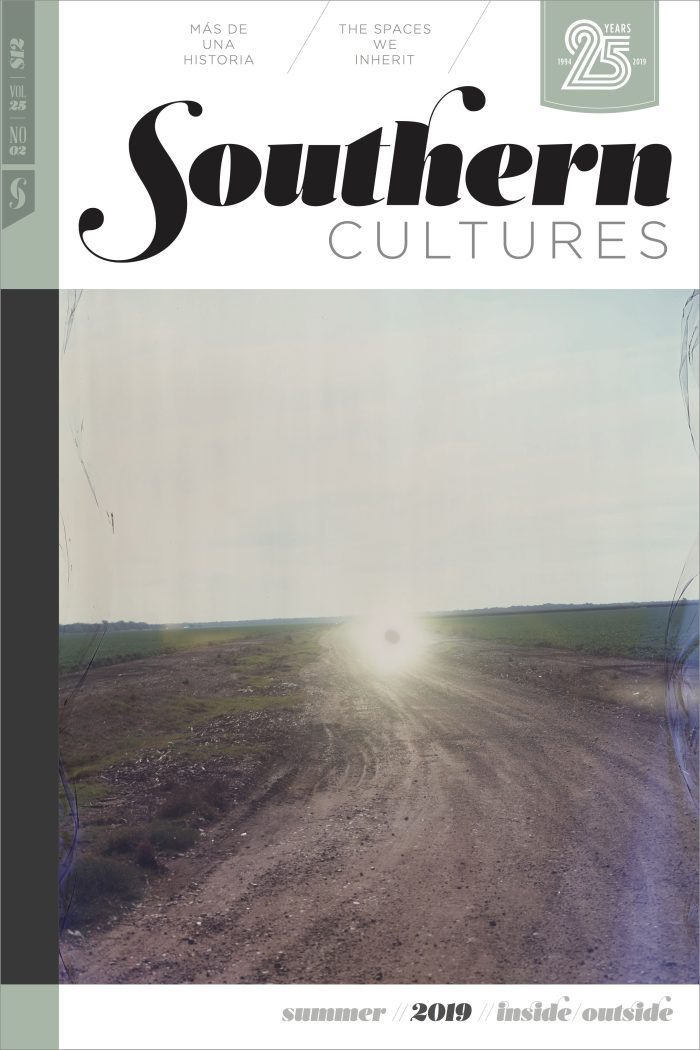I’ll tell you what, Papaw was a drunk, the sweetest man alive.
Sober: A good husband; a loving father; he worked hard regardless,
but I’ve never heard tell if he was able to keep a job
or if the family moved because of his drinking. On a binge, he beat Granny.
He’d come home at 2am and beat her and she’d have to fry a chicken
or fix something for him and his friends, her brothers, to eat. He beat her
with his belt. My mother says she can remember the snap. I wasn’t there,
but I can hear it, too, the way it caught the back of Granny’s legs,
the way she whimpered don’t. I can see the thin cotton layer
of her nightgown that may as well not even been there.
I hear the snap, too, almost every day.
It’s the same crack I heard when my brother and I tore
his bedroom door off the hinges. He was nine and I was fourteen
and he went to shut his door as I pushed against it. Hinges cracked loose
from frame. I heard the clap of my father’s recliner as he jumped up,
screaming, but I didn’t know what had really happened
until I felt the smack of the broomstick against my back. He got in three
or four swings before I escaped to my room. I don’t remember
how many times he hit my brother, although surely he did,
just as I’m sure my mother made him stop hitting us, but they were both mad
about the damage we’d done. I can laugh about it:I was fourteen the last time I got a spanking . . . good god, I was too old,
but I really wasn’t spanked that often. It’s true. I tell it and laugh
the same way my father and his brother laugh about how Mamaw beat them
for good measure. My father was so mean, she put a dog collar on him,
kept him chained to a tree in the yard so she could get her gardening done.
They laugh about this and the way she’d beat my uncle, too,
seven years older than my father, because he knew better
and didn’t stop my father from doing meanness.
If anything, he egged him on.
Back home, abuse a joke, something akin to discipline and parenting.
My father and his brother wore their beatings like medals pinned to chests.
I don’t think they ever stopped once to consider what kind of men they’d become
or the ways they passed this trauma down. They would laugh at calling it
trauma. They laughed at calling it abuse. Laughter like a leather belt
snapping skin. Their laughter cracks when they tell the story and everyone
else has manners so good it keeps them from saying what’s on their minds: My lord.
Most often I wake up because I think I’ve heard him, the floor crack
or the door creak, or, even worse, I wake because it’s too quiet in the house,too quiet in the house where I’m asleep in my dreams. I hear his laugh
at the way I jump when his hand snaps back, fist raised. I hear the snap,
the belt, the wood splinter, the laugh track, chain snap against tree,
and I lie awake waiting for the sting.
Savannah Ripple is a writer from east Kentucky. Her debut poetry collection WWJD and Other Poems (Sibling Rivalry Press, 2019) explores what it is to be a queer woman in Appalachia and is rooted in its culture and in her body. With a beer-drinking Jesus as her wing man, she navigates this difficult terrain of stereotype, conservative Evangelicalism, and, perhaps most, shame. Her writing has recently been published in Salon, Appalachian Heritage, Waxwing, and other places. She is also the recipient of grants from the Money for Women/Barbara Deming Memorial Fund and the Kentucky Foundation for Women.


